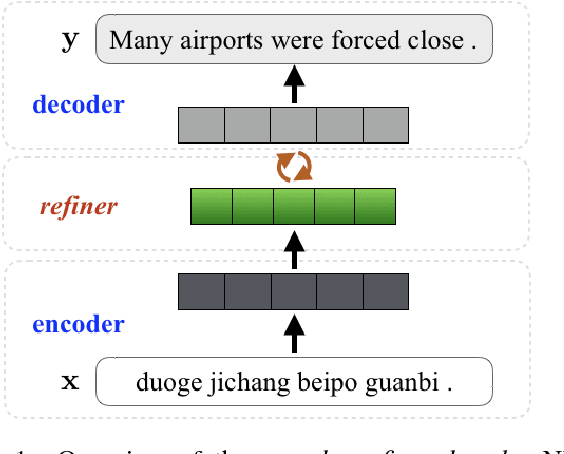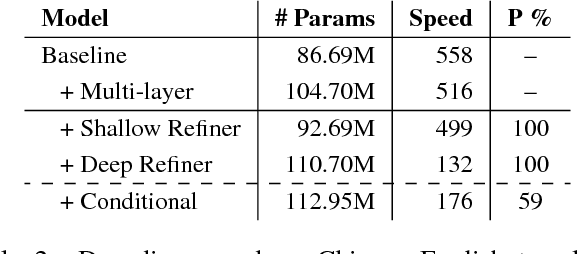Learning to Refine Source Representations for Neural Machine Translation
Paper and Code
Dec 26, 2018



Neural machine translation (NMT) models generally adopt an encoder-decoder architecture for modeling the entire translation process. The encoder summarizes the representation of input sentence from scratch, which is potentially a problem if the sentence is ambiguous. When translating a text, humans often create an initial understanding of the source sentence and then incrementally refine it along the translation on the target side. Starting from this intuition, we propose a novel encoder-refiner-decoder framework, which dynamically refines the source representations based on the generated target-side information at each decoding step. Since the refining operations are time-consuming, we propose a strategy, leveraging the power of reinforcement learning models, to decide when to refine at specific decoding steps. Experimental results on both Chinese-English and English-German translation tasks show that the proposed approach significantly and consistently improves translation performance over the standard encoder-decoder framework. Furthermore, when refining strategy is applied, results still show reasonable improvement over the baseline without much decrease in decoding speed.
 Add to Chrome
Add to Chrome Add to Firefox
Add to Firefox Add to Edge
Add to Edge